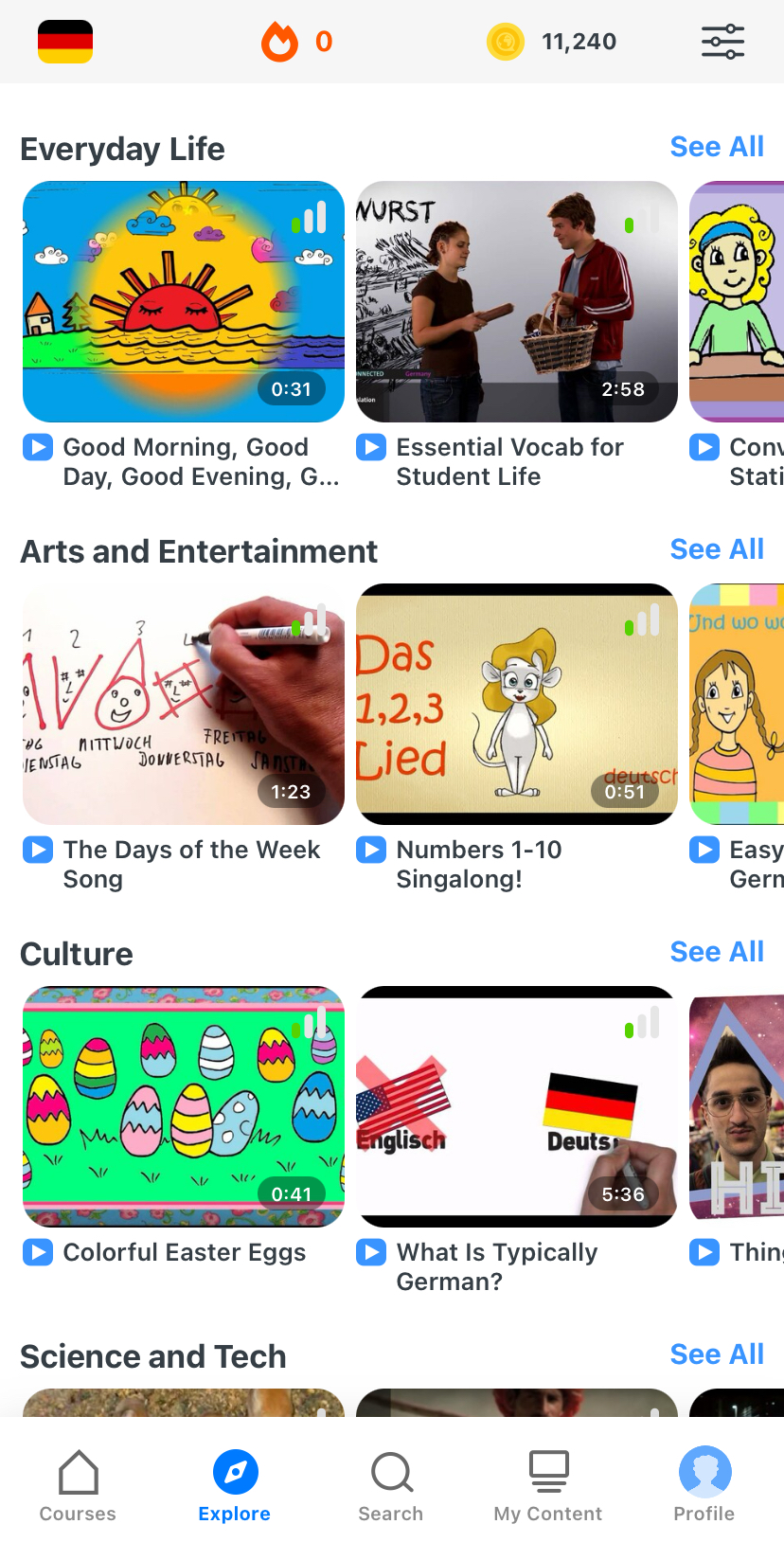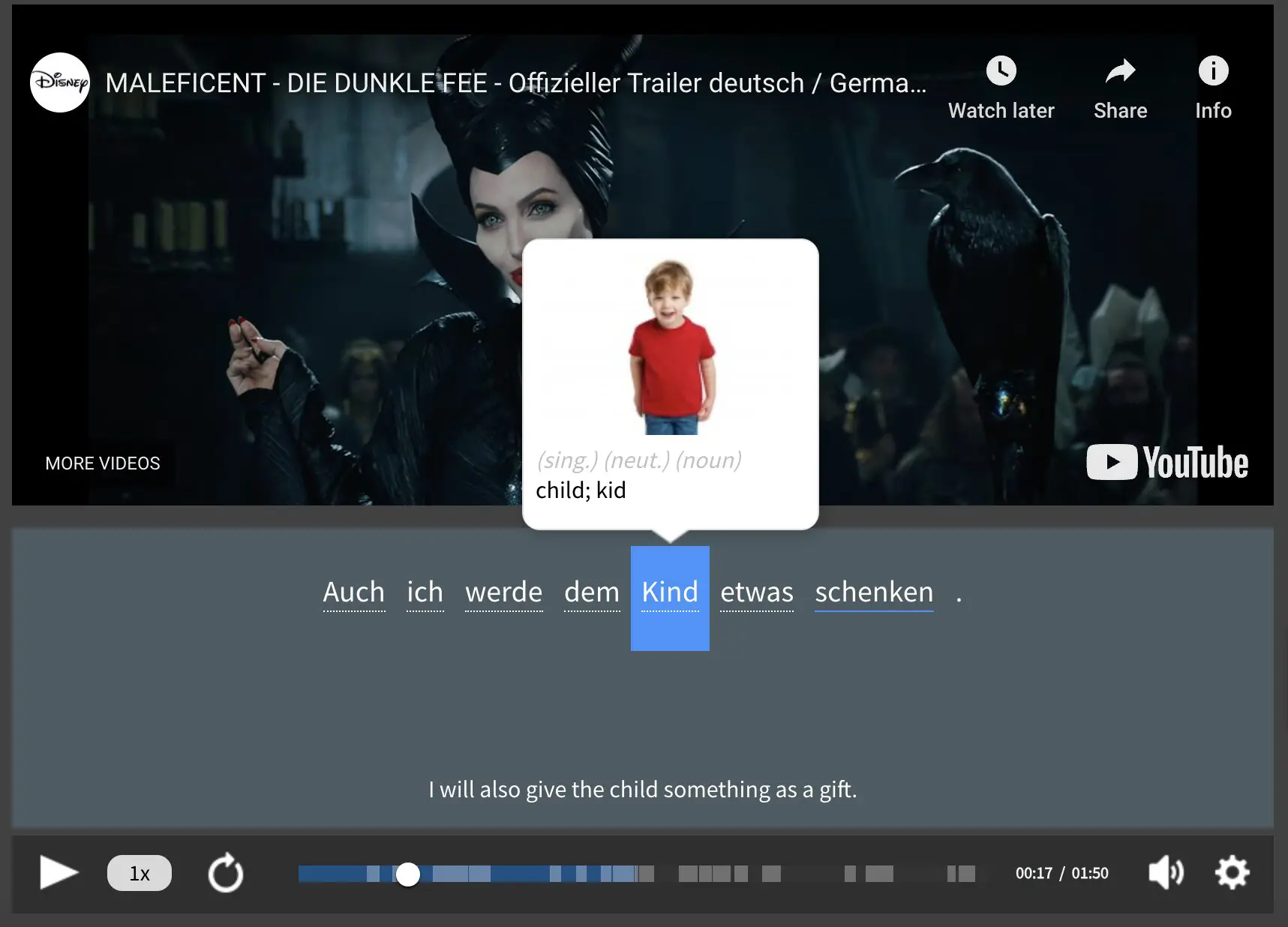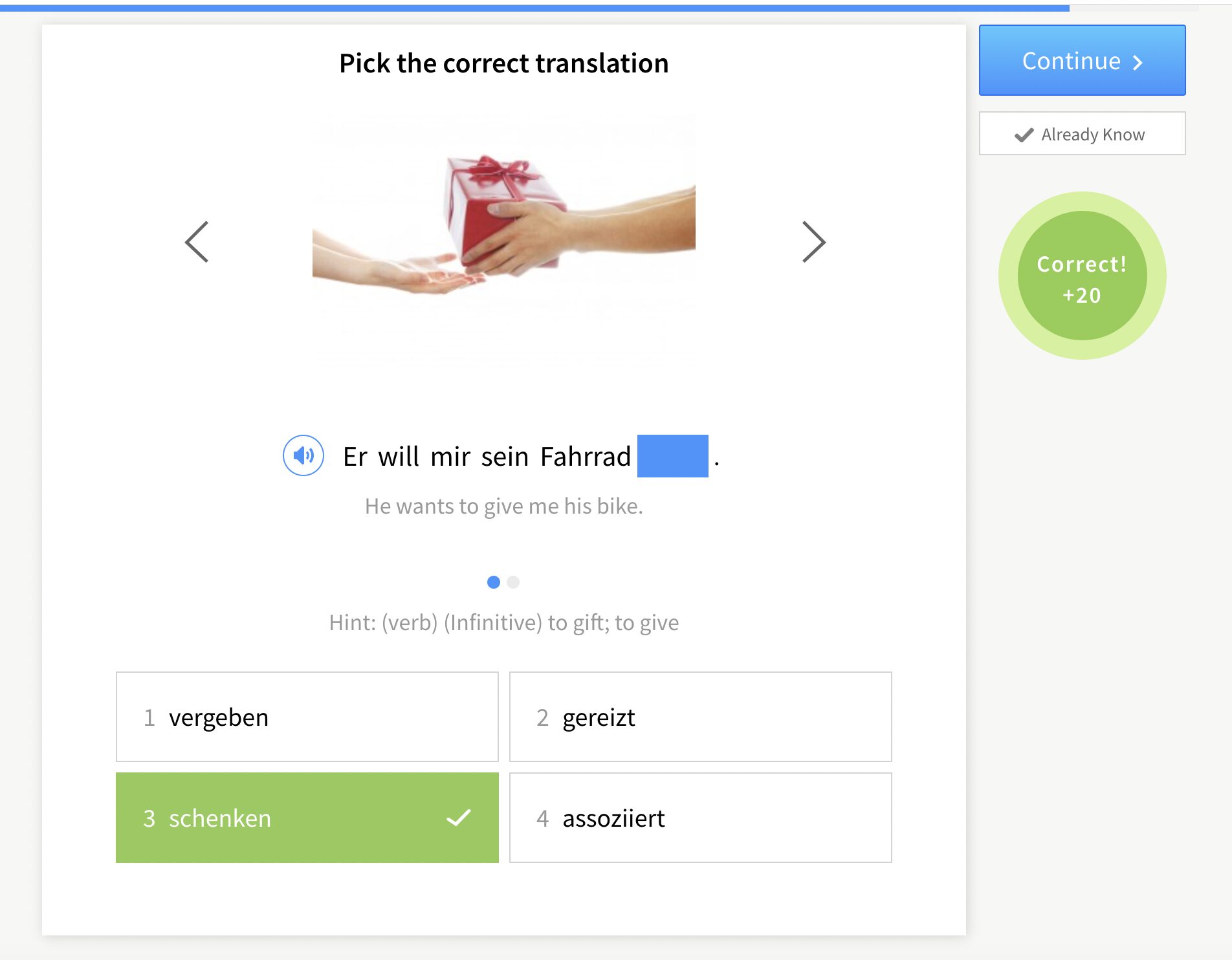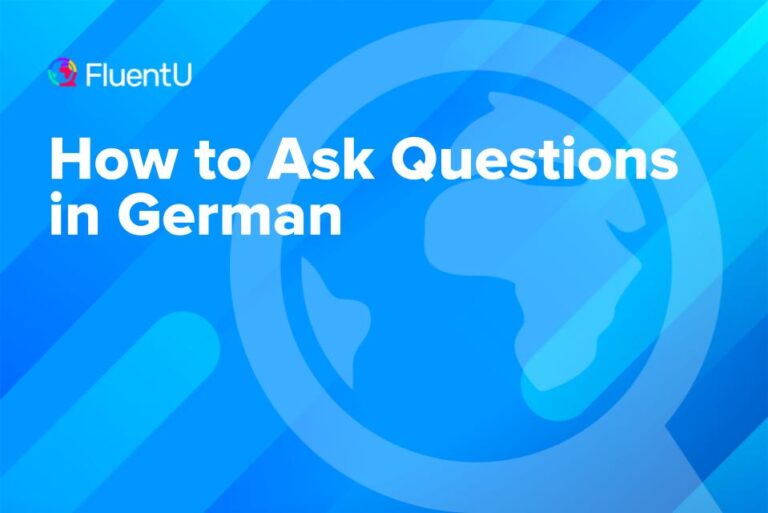The Complete Guide to German Separable Verbs

There are many wonderful and complex things about the German language, but separable verbs often cause lots of problems for German learners.
Today, we’ll learn all about separable verbs, including how to use them, when to separate them and when not to separate them. I’ve broken those details down into straightforward steps and minimized the information you need to memorize.
Download: This blog post is available as a convenient and portable PDF that you can take anywhere. Click here to get a copy. (Download)
What Are German Separable Verbs?
In German, some verbs separate into two parts when used in the present tense. While that might sound weird—to take a word and break it apart even for normal use—we do the same thing in English. In English, they’re called “phrasal verbs.”
For example, consider what you do with a library book: do you check it? No. You check it out. You can also check for the library book while you’re browsing through the aisles (you know, to make sure it’s there). And when you bring it back, you make sure it gets checked back in—once the librarian has checked it over to make sure you haven’t written all over it in crayon or spilled beer onto the cover.
Just by adding one preposition (a word that shows the relationship between two things, such as in, on, at, over, under, etc.), we can change the meaning of the verb.
In German, plenty of verbs are made of a prefix (often a preposition) and a core verb. When a prefix is added to a core verb, the meaning changes.
The same is true in English—we can change the meanings of some verbs in English by adding a preposition, but in English we add it after the verb, and it’s a separate word. Consider the phrasal verbs get along, get over and get down. All three of them have the word “get,” but when you change the preposition that follows, you go from having a good relationship to recovering from something to busting a move on the dance floor. The prepositions (or in German, the prefixes) make a huge difference!
Now, when you start with a German separable verb, referred to in German as a trennbares verb (separable verb), you might begin working with it in the infinitive form. Or at least you should if you prefer to keep life simple.
For example, aufstehen (“stand up” or “get up”) is literally “upstand” or “upget” since the preposition is stuck on the front. If you want to talk about what time you get up in the morning, you would split that auf- off from the front of the trennbares Verb (aufstehen), you would put it at the end of the sentence and conjugate stehen like you normally would:
Ich stehe um sieben Uhr auf. (I get up at seven o’clock.)
Let’s do another one with the verb zuhören (to listen to).
If you want to say “I listen to you,” separate the zu- from the front and put it at the end, again conjugating the main verb, hören , according to the subject:
Ich höre dir zu. (I listen to you.)
Also, remember that in this case we say dir and not dich or du because we’re using the dative case. What a lovely, easy language!
As a final, common example, if you call your friend, you use the verb anrufen (to call), which becomes:
Ich rufe meine Freundin an. (I call my friend.)
As is the case in English with phrasal verbs, these separable verbs can trip up learners, but they’re used in all kinds of common expressions. So that means that you really do need to learn them if you want to become completely proficient in the language.
Be careful of prefixes—not all of them are separable!
There are plenty of examples of prefixes that change the meanings of words. Many of these are prepositions but, just as in English, some of them are not standalone words, but simply prefixes.
Let’s consider the verb laufen (to walk). Well, sich verlaufen means to go astray. So you might think, “Ah ha! Here we have a prefix, ver, stuck on to the beginning of the verb. I know what to do if I want to conjugate it. I put the prefix at the end of the sentence and conjugate the core verb like normal.”
Unfortunately, that’s not correct in this case.
If you said “Ich laufe mich ver,” your sentence would be incorrect and you’d confuse your listener. That means “I walk me…ver” with the prefix ver- simply stuck in the middle of nowhere, with no real standalone meaning.
It’s true that ver- is a prefix and it’s also true that it’s stuck onto a core verb (a verb that would be perfectly fine without that prefix), but this is not a separable verb. This is a non-separable verb. In this case, you leave that prefix right where it is and conjugate the rest of the word like normal:
Ich verlaufe mich. (I go astray.)
Before you go using separable verbs in German, you’re going to want to keep reading. Ich empfehle es. (I recommend it.) See how I sneaked that example in there? Empfehlen (to recommend) has the prefix emp-, which does not separate from the core verb, so we leave it right there and work around it, conjugating the core verb like normal.
How do you know if a prefix or verb is separable?
Fortunately, you don’t have to go through and memorize every verb and whether or not it’s a separable verb. You can just memorize which prefixes come off and which ones don’t. And if you really want to keep your required efforts to a minimum, you just need to remember which verb prefixes don’t separate; that list is shorter and easier to remember.
The following are non-separable prefixes:
- be-
- ent-
- emp-
- er-
- ge-
- miss-
- ver-
- zer-
That’s it. You’re done. No, really, it’s that simple. Seriously!
For example:
Kaufen (to buy): Ich kaufe einen Apfel. (I buy an apple.) No prefix. Easy.
Einkaufen (to shop or to buy): Ich kaufe einen Apfel ein. (I buy an apple.) Notice how that prefix isn’t on our list of non-separable prefixes? Then pop that ein off and stick it on the end.
Verkaufen (to sell): Ich verkaufe einen Apfel. (I sell an apple.) Here we have the prefix ver-, which is on our list of non-separable prefixes, so we leave it right where it is.
One side note: the difference between kaufen and einkaufen can sometimes be confusing, so you might want to read a bit more about that.
And just for fun, here’s another example:
Sprechen (to speak): Wir sprechen Deutsch. (We speak German.) No prefix, no problem.
Absprechen (to agree): Wir sprechen den Preis ab. (We agree on the price.) Here we have a prefix that isn’t on our list of non-separable prefixes, ab, so we take it off the verb and stick it at the end.
Versprechen (to promise): Wir versprechen, nur Deutsch zu sprechen. (We promise to only speak German.) That ver- is a non-separable prefix so we leave it alone.
All the other prefixes, which you can read about with their associated definitions, are separable prefixes.
So unless it’s one of those few, non-separable prefixes listed just above, you can rest assured that it separates and that you’re safe conjugating the core verb and putting the prefix at the end. Here’s a handout where you can test yourself on separable and non-separable verbs.
There are, of course, exceptions to every rule, and in this case there are three prefixes that sometimes separate and sometimes don’t. For more information on that, check out this post about separable verbs on the Deutsched website.
Now that you know how to recognize verbs with prefixes that separate and verbs with prefixes that don’t separate—and how you can practice them in context—let’s explore when you actually need to use this information.
When to Separate Separable Verbs
Here are three tips that will guide you through most cases. We’ll start with a time when you should not separate a verb.
1. Do not separate them when used with modal verbs
If you use a separable verb in the infinitive form, it stays together. That’s the easy part. That means that if you’re using it with a modal verb, you can stick the entire separable verb at the end of the clause and not pay any further attention to it.
For example:
Ich will Geld ausgeben. (I want to spend money.)
Sure, aus- is a separable prefix. See how it’s not on our short list of non-separable prefixes up there? But in this case we’re using it in the infinitive form because it’s following the modal verb wollen (to want), conjugated in first person singular present tense: will (want). So we don’t separate it after all.
Bonus example:
Ich werde es abgeben. (I will give it up.)
Ab- is also a separable prefix, but that doesn’t matter in this case because it’s used with a modal verb so we leave it in its infinitive form. When a separable verb follows a modal verb, we leave it alone. Just treat it like you would treat any infinitive verb. Nothing to see here. Move along.
2. Separate them when used in the imperative
If you want to give directions or commands, you’ll want to get familiar with the imperative form. If you want to tell someone to wash off their hands, wasche deine Hände ab is a very useful phrase. Notice how abwaschen (wash off) has a separable prefix and when used in the imperative form, that prefix pops right off and goes at the end.
3. Separate them when used as participles
Oh, participles, how we love thee. Let us count the ways. OK, well right now we have only three ways we love thee: present perfect, past perfect and when used as a participial adjective.
If your eyes just glazed over, come back! And don’t worry, we’re still on the topic of separable verbs. When a separable verb is used as a past or present perfect participle, the ge- you normally add to the front of a word is stuck after the separable prefix of a separable verb.
This definitely calls for an example or two:
Das Wasser ist gelaufen. (The water has run.)
Das Wasser ist ausgelaufen. (The water has run out.)
Another grammatical side note: you might also remember that in this example we use ist instead of hat for our helping verb because this is an intransitive verb indicating a new state. For more on that, check out transitive verbs.
Here’s another example:
Ich bin gegangen. (I went.)
Ich bin eingegangen. (I went in.)
And if you want to use the participle as an adjective, say, in describing your freshly washed hands, you can refer to your abgewaschenen Hände (washed-off hands). Notice how again, the ge- that normally goes at the front of the verb in this case goes between ab- and waschenen because abwaschen is a separable verb. See that prefix?
Enough with participles.
Where to Separate and Place Separable Verbs
At this point, you probably have a pretty good handle on where the separation goes when you’re dividing up separable verbs, but in case you’d like to check out a detailed list of prefixes and their associated meanings, you’ll know exactly where to cut the verb or where to insert the ge-.
The rule is always to separate between the prefix and the core verb.
Here’s a basic example:
Ich habe es abgesprochen. (I arranged it.)
See how the ge- goes between the ab- and the gesprochen ? But by now you know that already, right?
Just in case you want to be doubly sure, try this one:
Die Milch ist abgelaufen. (The milk has expired.)
A word on negation: if you want to negate separable verbs, put the nicht right before the prefix.
Zum Beispiel (for example), we would say “he washed his hands” as:
Er wäscht sich seine Hände ab.
If Herr Muster (Mr. Sample) is a bit of a slob, we can say:
Er wäscht sich seine Hände nicht ab.
(He doesn’t wash his hands off.) Eww!
Tips for Learning and Using Separable Verbs
It’s amazing how much computational power many of us carry around in our pockets, purses or backpacks these days. When you want to learn something, your smartphone is a great first step, and that’s true whether you want to look up translations online or if you want to take advantage of the many apps available to help memorize vocabulary lists or understand language rules.
If you want to master German separable verbs, try an app like Quizlet and search for a set of flashcards on German separable prefixes. There are plenty to choose from and if you can’t find any that suit your exact tastes, you can always upload your own.
Because separable verbs often have common core verbs, it’s also important to learn those core verbs and their associated meanings. That’s something you’re going to want to do when learning a new language, anyway: learn the verbs.
You can use language learning programs like FluentU to find more examples of these words being used in a natural way with authentic German videos.
FluentU takes authentic videos—like music videos, movie trailers, news and inspiring talks—and turns them into personalized language learning lessons.
You can try FluentU for free for 2 weeks. Check out the website or download the iOS app or Android app.
P.S. Click here to take advantage of our current sale! (Expires at the end of this month.)
FluentU also lets you create multimedia flashcard decks to study these verbs and further review them through personalized quizzes. If you aren’t sure when to use a verb, you can search for it to see exactly how native speakers would use it in various situations.
But if you want to focus more specifically on the separable verbs, study the meanings of the prefixes and prepositions used in separable verbs. For a list, check out this great post on the meanings of German prefixes.
Learning German doesn’t have to be hard. In fact, if you take it one step at a time it becomes almost effortless.
German separable verbs come easily after you have a good handle on a few core verbs and you know which prefixes separate. With that knowledge under your belt, you should be able to use separable verbs with confidence. And before you know it, your verb separation anxiety will be a thing of the past.
Download: This blog post is available as a convenient and portable PDF that you can take anywhere. Click here to get a copy. (Download)
And One More Thing...
If you're like me and enjoy learning German through movies and other media, you should check out FluentU. With FluentU, you can turn any subtitled content on YouTube or Netflix into an engaging language lesson.
I also love that FluentU has a huge library of videos picked specifically for German learners. No more searching for good content—it's all in one place!

One of my favorite features is the interactive captions. You can tap on any word to see an image, definition, and examples, which makes it so much easier to understand and remember.
And if you're worried about forgetting new words, FluentU has you covered. You'll complete fun exercises to reinforce vocabulary and be reminded when it’s time to review, so you actually retain what you’ve learned.
You can use FluentU on your computer or tablet, or download the app from the App Store or Google Play. Click here to take advantage of our current sale! (Expires at the end of this month.)








